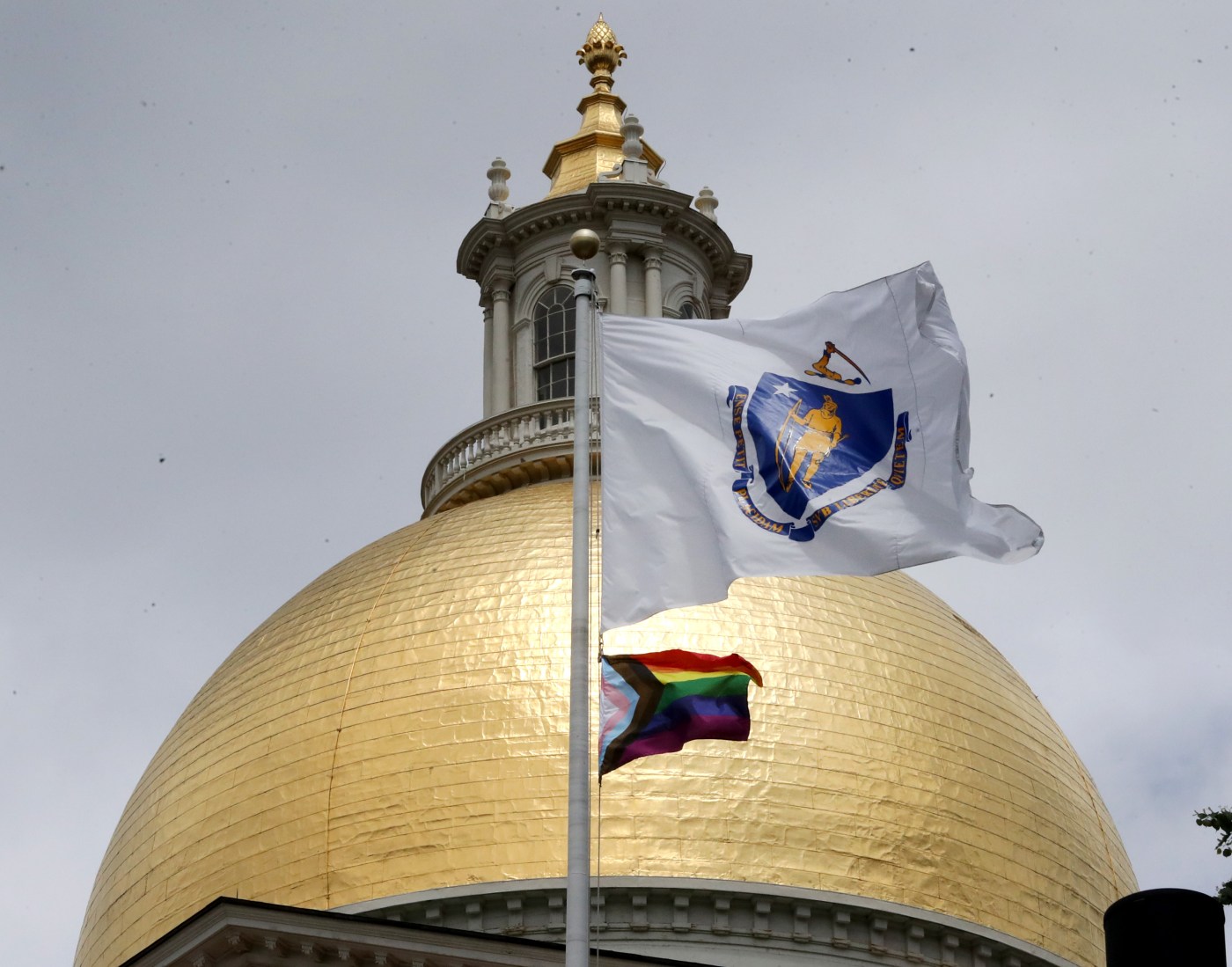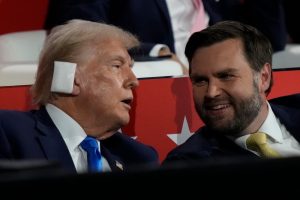
Beacon Hill Dems agree to online lottery sales, free community college in budget deal
Massachusetts Democrats agreed to permanently offer free community college to students and legalize online lottery sales as part of a $58 billion fiscal year 2025 budget lawmakers expect to ship to Gov. Maura Healey before the weekend.
Advocates of online lottery sales have been pushing legislators on Beacon Hill for years to greenlight the practice but have found consistent pushback in the Senate, where Democratic leaders have expressed hesitancy toward the expansion of legal gambling in the state.
But Senate President Karen Spilka said there were enough protections written into the budget this time around — raising the age to purchase online lottery products to 21 and boosting rules around advertising — that “we felt more comfortable with it.”
“We could always look at this again and see how it goes. It hasn’t been implemented yet. We’ll meet with the treasurer. And she’s done a great job with the lottery in general so we’re hoping that this is a smooth implementation as well,” Spilka told the Herald.
Senate budget writer Michael Rodrigues said it was too early to provide a revenue estimate for online lottery sales but dollars generated by the proposal will head to a grant program that supports early education and care providers’ day-to-day operational and workforce costs.
Treasurer Deb Goldberg’s office, which oversees the Massachusetts State Lottery, will be tasked with overseeing the rollout of the online component and the purchase age for in-person lottery products will remain at 18 years old, legislative leaders said.
Related Articles
Mass. Democrats reach deal on overdue state budget
Pols & Politics: Gov. Healey walks political tightrope after gubernatorial huddle with Biden
Massachusetts will start new fiscal year without state budget in place for 14th straight year
Pols & Politics: As time runs out, meeting state budget deadline only a ‘point of pride’ for one top Democrat
MBTA on verge of ‘existential crisis,’ new report says
Rodrigues admitted he and Spilka were not the “biggest gambling supporters in the building” but consumer protections and language preventing “predatory advertising against minors” included in the budget made the proposal acceptable.
“We’re very concerned with this expansion of online gaming, whether it’s sports gaming or now the lottery, that because of how easy it is to access it right through your phone that it could target some minors. So we have protections built into it, and the House agreed with the protections,” he said.
House budget writer Aaron Michlewitz said allowing the lottery to go online will give officials in Goldberg’s office the tool “to be competitive in that space.”
“Third time’s the charm for us on this issue,” he said, adding that the policy is expected to survive Healey’s veto pen because she included the measure in her own budget proposal from January.
The budget also represents the second time the House and Senate have had to divvy up revenue from the so-called “Millionaires Tax,” a 4% surtax on incomes over $1 million. Initial proposals from both branches differed on how much money would head to transportation and education initiatives.
The final agreement shuttles $762 million toward education proposals and $538 million to transportation-related initiatives, according to legislative leaders. The split more closely aligns with what the Senate proposed earlier this year.
Among the surtax spending decisions is a $117 million push to permanently offer free community college to students by covering tuition and fees. The provision largely codifies a program Healey rolled out last year dubbed MassReconnect.
Spilka said the proposal will make good on a pledge she offered earlier this year to roll out a “student opportunity plan,” a play on the state’s Student Opportunity Act.
“I really believe this is our future. We talk about Massachusetts being more competitive, when I go out across the whole state, I don’t hear taxes is the reason we need to be more competitive. I hear the high cost of higher education, the high cost of child care, early education and care,” Spilka said.
Beacon Hill legislators will need to approve funding for the free community college program each year, according to legislative leaders.
Lawmakers approved a total of $447 million in funding for the MBTA, including $20 million for a low-income fare relief program, $127 million in operating support, $60 million for capital investments, $36 million for a workforce and safety reserve, and $10 million for an “MBTA Academy” to support workforce training and recruitment.
House Democrats initially proposed $555 million for the MBTA, which House Speaker Ron Mariano described as a “record investment” for a transit agency facing a massive budget gap in the coming years.
Michlewitz said the $447 million set aside for the MBTA is still “record funding.”
“Originally, we went higher on the capital investments, we went higher on the safety reserves. We put our MBTA Academy number at a higher number. So a number of those pieces were shaved down based off of us having them, the Senate not having them. And that’s where you get to the final number,” he said.
Massachusetts started fiscal 2025 without a full spending plan in place for the 14th straight year, according to historical records, and lawmakers took more than two weeks to finalize an agreement.
Michlewitz said volatile revenues over the past year played a role in negotiators going past the annual budget deadline. But components around early education and care also required “a lot of negotiating,” he said.
“I will say one thing in particular, the (early education and care) funding mechanism, there was a lot of negotiating around that. Creating a lot of the pieces related to early education and care, a lot of the outside sections related to that, certainly were stuff that we went back and forth on,” the North End Democrat said.
Rodrigues said the yearly budget is “complicated” and the hold-up was not due to one thing.
“It’s a $58 billion budget, hundreds of outside sections, some major policy changes,” he said. “We always keep our eyes on the revenue numbers but that was not the issue that caused us to be 17 days late. It’s just the size and the complexity.”

